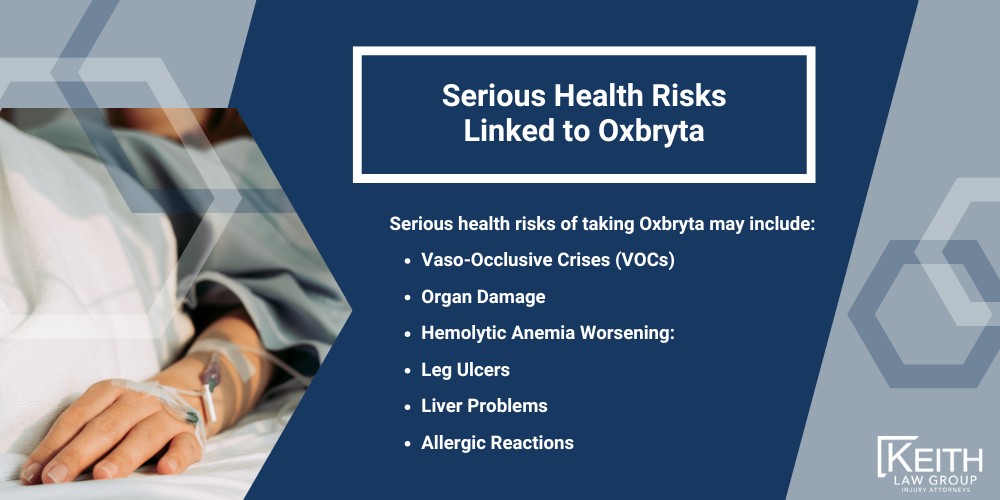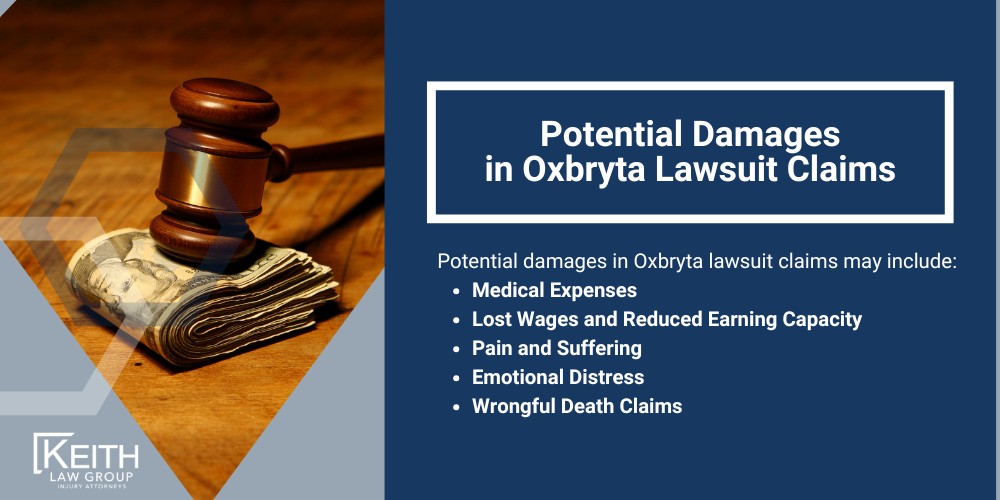- Last Updated: November 24th, 2025

Attorney Sean T. Keith has been a personal injury lawyer for 30+ years, a nationally recognized Top 100 Trial Lawyer, and top car accident lawyer & motor vehicle accident lawyer in Arkansas.
Legally Reviewed
This article has been written and reviewed for legal accuracy and clarity by the team of writers and attorneys at Keith Law Group and is as accurate as possible. This content should not be taken as legal advice from an attorney. If you would like to learn more about our owner and experienced injury lawyer, Sean T. Keith, you can do so here.
Fact-Checked
Keith Law Group does everything possible to make sure the information in this article is up to date and accurate. If you need specific legal advice about your case, contact us. This article should not be taken as advice from an attorney.
Sean Keith's Accollades & Practice Areas He Specializes In
- Over $20 Million recovered in Medical Device Injury Lawsuits.
- Over $13 Million recovered in Car Accident Lawsuits and other Motor Vehicle Accident Lawsuits.
- Over $100 Million recovered in total on behalf of clients.
- Sean represents clients in cases involving personal injuries, car accidents, motorcycle accidents, truck accidents, wrongful death, slip and falls, nursing home abuse cases, nursing home elopement cases, and more.
Legal Investigation for Oxbryta (Sickle Cell Disease Treatment)
On this page, we’ll discuss the Oxbryta Lawsuit, severe complications associated with Oxbryta, why sickle cell patients taking Oxbryta may be seeking legal action, the withdrawal of Oxbryta from the market, and much more.

Do You Qualify for the Oxbryta Lawsuit?
Oxbryta, a drug developed to treat sickle cell disease, has come under legal scrutiny following reports of severe health complications linked to its use.
Pfizer, the manufacturer, issued a global recall in 2024 after data suggested an increased risk of vaso-occlusive crises (VOCs), organ damage, stroke, kidney failure, and other life-threatening conditions.
Sickle cell patients who relied on Oxbryta to manage their condition may have unknowingly faced heightened medical risks due to inadequate warnings from the company.
Lawsuits are now being investigated to determine whether Pfizer failed to properly test the drug and disclose its dangers to the public.
Individuals who suffered serious health complications after using Oxbryta may be eligible to pursue legal action for medical expenses, pain and suffering, and other damages.
Family members of individuals who have succumbed to fatal events linked to taking Oxbryta may also be eligible to file an Oxbryta Lawsuit.
Keith Law Group is reviewing potential claims to help those harmed by the drug seek justice and compensation.
If you or a loved one experienced severe side effects after taking Oxbryta, contact us to discuss your legal options.
You can also use the chat feature on this page to find out if you qualify for the Oxbryta Lawsuit.
Table of Contents
Oxbryta Lawsuit Overview
Oxbryta (voxelotor) was developed as an innovative treatment for sickle cell disease (SCD), aiming to reduce hemoglobin polymerization and prevent the sickling of red blood cells.
Approved by the U.S. Food and Drug Administration (FDA) in November 2019 for patients aged 12 and older, its indication expanded in December 2021 to include children as young as four.
Despite initial optimism, concerns emerged over severe complications associated with Oxbryta, leading to a global recall by Pfizer in September 2024.

Subsequent lawsuits allege that the drug increased the risk of serious health issues, including vaso-occlusive crises (VOCs), organ damage, stroke, kidney failure, and even death.
These legal actions claim that Pfizer and Global Blood Therapeutics failed to adequately warn patients and healthcare providers about these risks, prompting affected individuals to seek compensation for their injuries.
Purpose of Oxbryta Explained
Oxbryta (voxelotor) was developed as a breakthrough treatment for sickle cell disease management, offering an alternative to traditional methods such as blood transfusions.
Unlike other treatments that primarily address symptoms, Oxbryta works by inhibiting hemoglobin polymerization, a key factor in red blood cell sickling.
By preventing red blood cells from taking on their characteristic sickle shape, the drug was intended to improve oxygen delivery and reduce complications associated with the disease, such as blockages in blood vessels that can lead to severe pain and organ damage.
The drug’s approval process was expedited under the FDA’s Accelerated Approval Program, which allows promising medications to reach patients more quickly based on early clinical evidence.
Initial clinical trials showed that Oxbryta increased hemoglobin levels in sickle cell patients, leading to its approval in November 2019 for individuals aged 12 and older.
Subsequent studies expanded the drug’s use to children as young as four.
However, despite promising early clinical data, concerns arose over potential adverse effects, prompting further scrutiny into the drug’s long-term safety and effectiveness.
Serious Health Risks Linked to Oxbryta
Following its approval, emerging data began to raise serious concerns about the safety of Oxbryta for sickle cell disease patients.
Reports of adverse events linked to the drug included an increased risk of acute chest syndrome, a life-threatening complication in which sickled red blood cells block blood flow to the lungs.
Patients also reported severe side effects such as abdominal pain, extreme fatigue, and other debilitating symptoms that significantly impacted their quality of life.
As more cases of severe reactions surfaced, regulatory agencies worldwide began reassessing Oxbryta’s safety.
The European Medicines Agency (EMA) conducted an independent review and identified a heightened risk of organ failure in some patients taking the drug.
These findings aligned with growing concerns from U.S. health officials, prompting further investigation into whether Oxbryta’s risks outweighed its benefits.

Serious health risks of taking Oxbryta may include:
- Vaso-Occlusive Crises (VOCs): Painful blockages in blood vessels that restrict oxygen flow to tissues, leading to severe pain and potential organ damage.
- Organ Damage: Increased risk of kidney failure, liver damage, and stroke due to repeated blood vessel blockages.
- Hemolytic Anemia Worsening: Exacerbation of anemia symptoms as damaged sickle cells are rapidly destroyed, leading to fatigue and weakness.
- Leg Ulcers: Poor blood circulation due to VOCs can result in skin ulcers, particularly on the legs, posing further health challenges.
- Liver Problems: Patients with sickle cell disease are already vulnerable to liver complications, and reports suggest Oxbryta may increase these risks.
- Allergic Reactions: Potential side effects include allergic reactions, which could range from mild symptoms to more serious responses.
About the Oxbryta Recall
In September 2024, Pfizer announced a global voluntary recall of the sickle cell disease medicine Oxbryta, citing mounting safety data that linked the medication to increased complications in sickle cell patients.
Shortly thereafter, healthcare providers were advised to stop prescribing Oxbryta, and patients were urged to consult their doctors about alternative treatments.
The decision to pull the drug from the market signaled a major shift in the understanding of its long-term effects, leading to legal action from those who suffered severe health consequences.
The U.S. Food and Drug Administration (FDA) conducted further assessment of postmarketing clinical data, revealing an imbalance in vaso-occlusive crises and fatal events among Oxbryta users.
In a study involving 236 participants, eight deaths occurred in the Oxbryta group compared to two in the placebo group.
Consequently, Pfizer discontinued all active clinical trials and expanded access programs related to the drug.
The European Medicines Agency (EMA) also recommended suspending the marketing authorization for Oxbryta, citing serious safety concerns.
Patients currently taking Oxbryta are strongly advised to consult their healthcare professionals to discuss alternative treatment options.
Do You Qualify for the Oxbryta Lawsuit?
The first Oxbryta lawsuits were filed in the fall of 2024, claiming that patients who took the medication experienced severe complications such as increased vaso-occlusive crises (VOCs), organ damage, stroke, and even death.
These lawsuits allege that Pfizer, Oxbryta’s manufacturer, failed to adequately warn patients and healthcare providers about the potential risks associated with Oxbryta.
Individuals who were prescribed Oxbryta for sickle cell disease management and subsequently suffered serious health issues may qualify to file a lawsuit.
Eligibility criteria typically include documented use of Oxbryta and medical records evidencing adverse events like VOCs or organ failure.

If you or a loved one have been affected, it’s crucial to consult with a qualified attorney to assess your legal options and potential for compensation.
Contact an Oxbryta Lawyer from Keith Law Group today for a free consultation.
You can also use the chat feature on this page to find out if you qualify for the Oxbryta Lawsuit instantly.
Gathering Evidence for the Oxbryta Lawsuit
Building a strong Oxbryta Lawsuit claim requires thorough documentation of your medical history, prescription records, and the health complications you experienced after taking the drug.
Gathering key evidence can help establish a clear link between your use of Oxbryta and the serious side effects that led to your legal claim.

Important evidence for an Oxbryta lawsuit may include:
- Medical Records: Documentation of your sickle cell diagnosis, Oxbryta prescriptions, and any hospital visits related to adverse health effects.
- Pharmacy Records: Proof of Oxbryta prescriptions, including dosage and duration of use.
- Adverse Event Reports: Medical documentation of serious complications such as vaso-occlusive crises, organ damage, stroke, or other life-threatening conditions.
- Doctor’s Notes and Correspondence: Statements from healthcare providers detailing the side effects you experienced and any recommendations to stop using Oxbryta.
- FDA and Manufacturer Communications: Any recall notices, letters, or warnings received about the risks of Oxbryta.
- Test Results and Imaging Studies: Blood tests, MRIs, CT scans, or other diagnostic reports showing organ damage or other complications.
- Personal Testimony and Journals: Written records of your symptoms, pain levels, and the impact of Oxbryta on your daily life.
- Witness Statements: Testimonies from family members, caregivers, or colleagues who observed the effects of the medication on your health.
Compiling this evidence as soon as possible strengthens your case and helps attorneys pursue maximum compensation for your suffering.
Potential Damages in Oxbryta Lawsuit Claims
Patients who suffered severe health complications from Oxbryta may be eligible to pursue financial compensation for the physical, emotional, and financial toll of their injuries.
Legal claims against Pfizer seek to recover damages for both economic and non-economic losses caused by the drug’s undisclosed risks.

Potential damages in Oxbryta lawsuit claims may include:
- Medical Expenses: Compensation for hospital stays, emergency treatments, surgeries, medications, and ongoing medical care related to Oxbryta complications.
- Lost Wages and Reduced Earning Capacity: Reimbursement for time missed from work due to illness and future income lost due to long-term health issues.
- Pain and Suffering: Compensation for physical pain, chronic symptoms, and reduced quality of life caused by Oxbryta-related health complications.
- Emotional Distress: Damages for mental anguish, anxiety, depression, and psychological suffering resulting from severe side effects.
- Wrongful Death Claims: Compensation for families who lost a loved one due to fatal complications linked to Oxbryta, including funeral expenses and loss of financial support.
Filing a lawsuit can help affected individuals and their families recover the compensation they deserve while holding the manufacturer accountable for the harm caused by Oxbryta.
What is the Potential Oxbryta Lawsuit Settlement Amount?
The Oxbryta litigation is in its early stages, and no settlement has been reached to resolve claims related to health problems suffered due to the medication.
However, attorneys estimate that potential Oxbryta settlement amounts could range from
Oxbryta settlement amounts could range from $20,000 to over $500,000, depending on the severity of the harm suffered by affected individuals.
These figures are preliminary and may change as the Oxbryta litigation progresses.
It’s important to note that these estimates are speculative at this stage and not guaranteed.
Individuals who have experienced severe complications after using Oxbryta are encouraged to consult with a qualified attorney to understand their legal options and potential for compensation.
Keith Law Group: Investigating the Oxbryta Lawsuit
Keith Law Group is actively reviewing claims from individuals who suffered serious health complications after taking Oxbryta.
Our legal team is committed to holding pharmaceutical companies accountable when they fail to disclose the full risks of their medications, leaving patients vulnerable to life-threatening side effects.
We understand the physical, emotional, and financial burden that comes with unexpected medical complications, and we are here to help you navigate the legal process.
By investigating your case, gathering evidence, and building a strong legal claim, we aim to secure the compensation you deserve for your suffering.
The Oxbryta litigation is still developing, and now is the time to explore your legal options.

If you or a loved one experienced severe complications such as vaso-occlusive crises, organ damage, stroke, or other adverse events after using Oxbryta, you may be eligible to pursue legal action.
Our experienced attorneys are here to help you understand your legal rights and options.
Contact Keith Law Group today for a free consultation, or use the chat feature on this page to find out if you qualify for the Oxbryta Lawsuit instantly.
Frequently Asked Questions
-
Pfizer announced a voluntary withdrawal of Oxbryta from all markets in September 2024 due to emerging safety concerns.
Recent clinical data revealed an increased incidence of severe complications, including a higher rate of vaso-occlusive crises and fatalities among patients using the medication.
In a study involving 236 participants, eight deaths were reported in the Oxbryta group compared to two in the placebo group.
Consequently, Pfizer has ceased distribution of Oxbryta and discontinued all active clinical trials and expanded access programs related to the drug.
Regulatory bodies, such as the U.S. Food and Drug Administration (FDA) and the European Medicines Agency (EMA), have endorsed this decision, advising healthcare providers to halt prescriptions and urging patients to consult their physicians for alternative treatments.
Pfizer has communicated with regulatory authorities and emphasized the paramount importance of patient safety in making this decision.
-
Oxbryta has been linked to severe health complications, including an increased risk of vaso-occlusive crises (VOCs), organ damage, and fatal adverse events.
Patients taking the medication have reported worsening sickle cell symptoms, as well as life-threatening conditions affecting major organs.
Due to these risks, Oxbryta was voluntarily withdrawn from the market in 2024.
Health problems linked to Oxbryta include:
- Vaso-Occlusive Crises (VOCs) – Painful blockages in blood vessels, leading to severe pain and potential organ damage.
- Organ Damage and Organ Failure – Increased risk of kidney failure, liver damage, and stroke.
- Hemolytic Anemia Worsening – Exacerbation of anemia symptoms, including extreme fatigue and weakness.
- Leg Ulcers – Poor blood circulation leading to painful and slow-healing wounds.
- Severe Gastrointestinal Issues – Nausea, vomiting, diarrhea, and persistent abdominal pain.
- Acute Chest Syndrome – A life-threatening condition causing severe breathing difficulties.
- Fatal Adverse Events – Higher mortality rates were reported in Oxbryta users compared to those on placebo.
- Allergic Reactions – Skin rashes, hives, facial swelling, and difficulty breathing.
Patients who experienced these or other serious side effects after taking Oxbryta may have legal options to seek compensation.
-
Individuals who suffered severe health complications after taking Oxbryta may be eligible to file a lawsuit against Pfizer.
Those who experienced vaso-occlusive crises (VOCs), organ damage, stroke, or other life-threatening conditions linked to the medication could qualify for legal action.
Families who lost a loved one due to Oxbryta-related complications may also be eligible to file a wrongful death claim.
To pursue a lawsuit, claimants typically need medical records, prescription drug history, and documentation of the health issues they suffered after using the drug.
Consulting an experienced attorney can help determine eligibility and the next steps for seeking compensation.
Individuals who may qualify to file an Oxbryta lawsuit include:
- Patients who experienced severe health complications such as VOCs, stroke, kidney failure, or other organ damage after taking Oxbryta.
- Individuals diagnosed with worsening hemolytic anemia or other blood disorders linked to Oxbryta use.
- Families of deceased patients who suffered fatal complications related to the medication.
- Patients who required hospitalization or emergency medical treatment due to adverse effects of Oxbryta.
Potential claimants should act quickly, as legal deadlines may apply to filing an Oxbryta Lawsuit.
-
The time limit to file an Oxbryta Lawsuit depends on the statute of limitations in your state, which sets a legal deadline for pursuing compensation.
In most states, personal injury lawsuits must be filed within two to three years from the date of injury or discovery of harm.
However, in cases where Oxbryta’s dangers were not immediately known, some states allow claims to be filed within a certain timeframe after the recall or after a diagnosis of serious complications.
Families filing wrongful death lawsuits may also have a separate statute of limitations based on when the death occurred.
Since legal deadlines vary by state, it’s crucial to consult an attorney as soon as possible to avoid missing your opportunity to seek compensation.
Practice Areas
You pay
Nothing
unless we win
Do You Have A Case?
Related Articles

Choose Us For Your Personal Injury Case
- Available 24/7
- No Upfront Fees
- Free Case Evaluation
- No Fees Unless We Win!












